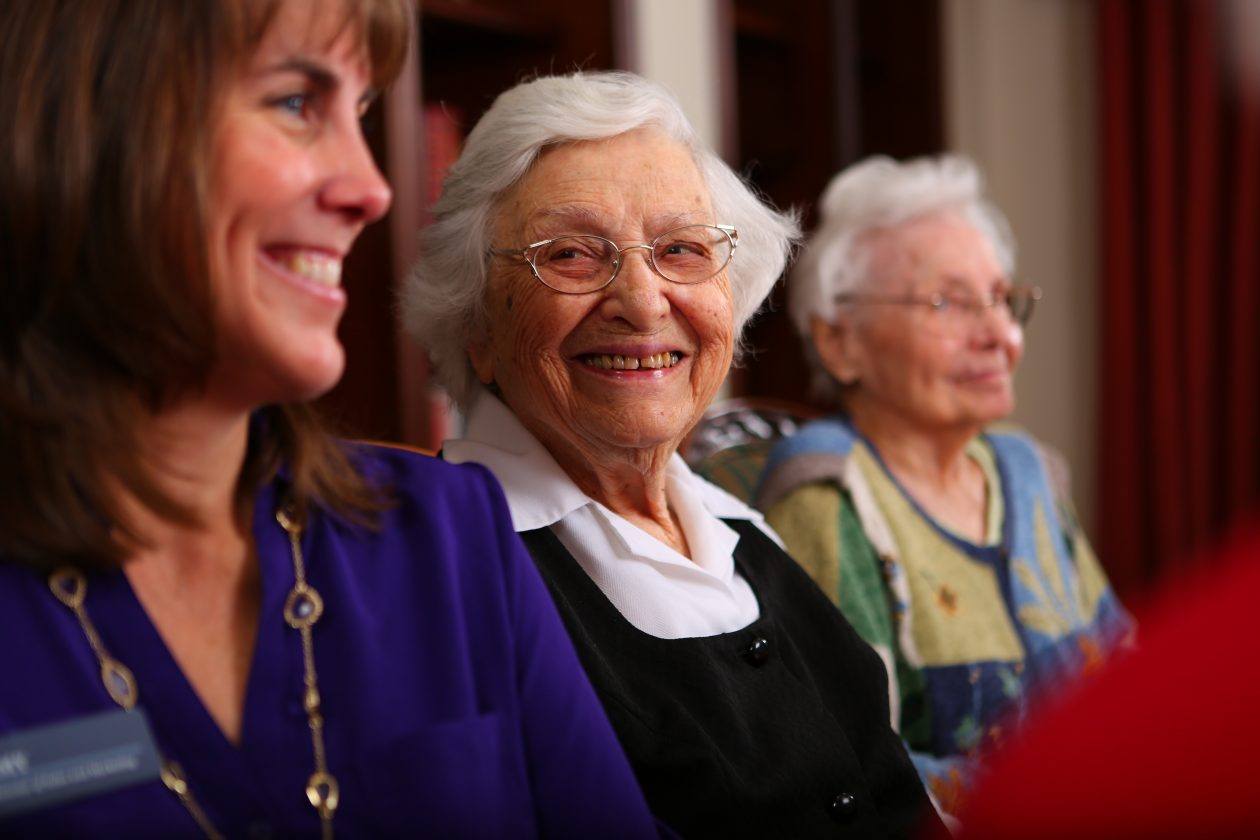When faced with a difficult diagnosis for yourself or a loved one and given the chance to attend a meeting, you may ask yourself, “What can a senior support group do for me?” Different support groups exist for many health conditions, bringing together people who face similar problems to share not only problems but also solutions.
Independent senior living doesn’t need to mean isolated living. Support groups for conditions such as Alzheimer’s disease, Parkinson’s and other illnesses can have a positive effect. There are also groups focused on the demands of long-term caregiving.
While some people may not need or want the support beyond that offered by family and friends, social support groups for the elderly offer many benefits for members.
What Are Senior Support Groups?
Senior support groups are made up of individuals who share a common interest or health concern. Most of these socialization groups focus on a specific condition or situation and are often started by a person with the condition or another involved person, such as a family member.
The format of these support groups varies, with some meeting in person, some by telephone and others on the Internet. The form of support that works best for an individual is often dictated by geographical location, the nature of the condition and personal preference.
Groups may be led by a facilitator with clinical experience in treating a specific illness or by a member of the group. Additionally, the group may be structured, with specific goals and agendas for each meeting, or it may be more oriented toward social connections and shared experiences.
Whatever the structure, support groups provide connections with others who share similar problems, as well as emotional and moral support. Quite often, members also share practical advice and coping skills for those facing a new diagnosis or at the beginning of a caregiving journey.

Download The Complete Guide to Health & Wellness for Seniors
As people grow older, their health and wellness needs change. Read our eBook, “The Complete Guide to Health & Wellness for Seniors” for everything you need to know about staying healthy and happy as we age.
Download the Guide
Benefits Of Elderly Support Groups
Besides providing the benefits of socializing and staving off senior isolation, support groups can help seniors cope with their changing world due to their diagnosis. It brings into their sphere people who have experienced what they have. Here are some reasons why socialization is important during times of need.
Receiving emotional support, less isolation
Seniors can share fears and frustrations, receive support without judgment and be reassured that others share similar problems. This provides support group members with an outlet for feelings that friends and family who aren’t in the same situation may not fully understand.
Getting practical advice and information
Support group members can share advice about treatment, medication and alternative options. Exchanging information about positive outcomes can empower members of the group to take a more active role in their care or seek out treatment options previously unknown to them.
Developing coping skills and managing expectations
For seniors facing a new diagnosis, having the opportunity to speak openly and frankly can be comforting as well as educational. Support group members may include those whose disease and treatment is more advanced. For many, lack of information on what to expect is frightening, and a “veteran” can provide valuable insight into treatment and progression of the disease.
Find Support Groups Near You
While support groups are not a substitute for medical care, the old proverb “A trouble shared is a trouble halved” holds true. Senior independent living shouldn’t isolate seniors. The benefits of sharing difficulties as well as practical advice can make dealing with a new diagnosis a little less daunting and managing a long-term condition a little less isolating.
For more information about support groups, please visit our website to find a community near you.

